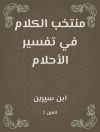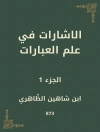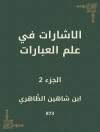A new turn in mixed methods research is here: merged methods. This provocative book offers a novel analysis of current mixed methods research, complicating traditional approaches and challenging existing techniques.
Moving beyond the binary quantitative-qualitative distinction, the book presents methodologically grounded ways to merge methods in social research and integrate interpretive and structural approaches in one instrument or procedure.
The book:
- Considers the importance of merging both epistemologies and methodologies.
- Showcases eight merged methods research approaches, from the Delphi method to multimodal content analysis.
- Explores the opportunities for merging methods using computational techniques, such as text mining.
This innovative book is a must-read for any postgraduate student or researcher across the social sciences wanting to develop their understanding of mixed methods research.
İçerik tablosu
Introduction: Setting the Scene for Merged Methods
Part I: Epistemology and Methodology
Chapter 1: Merged Methods: Development and Emergence of a New Paradigm
Chapter 2: Merged Epistemology: Assumptions, Experience, Knowledge
Chapter 3: Merged Methodology: A Rationale for Merged Methods
Chapter 4: Designing Merged Methods Research
Part II: Methods
Chapter 5: The Delphi Method: Forecasting Scenarios
Chapter 6: The Event History Calendar and Intervey Methods
Chapter 7: Q-Methodology: Studying People’s Viewpoints
Chapter 8: Multimodal Content Analysis: Texts and Sentiments
Chapter 9: Text Mining: From Tacit to Explicit Knowledge
Chapter 10: The SYMLOG Method: How to Analyze Behavior and Group Dynamics
Chapter 11: Conclusion: The Ways Ahead
Yazar hakkında
Wander van der Vaart is Associate Professor of Social Research Methodology at the University of Humanistic Studies, Utrecht (The Netherlands) and serves as a Vice-President of RC33, the Research Committee on Logic and Methodology of the International Sociological Association. He has a background in quantitative and qualitative research methods, political science and psychology. His interests are in flexible surveys and study designs for hard-to-study populations and phenomena. His publications appear in methods oriented journals (Field Methods, Journal of Official Statistics, Quality and Quantity, International Journal of Public Opinion Research) and substantive journals (Journal of Aging and Environment, Applied Cognitive Psychology).












